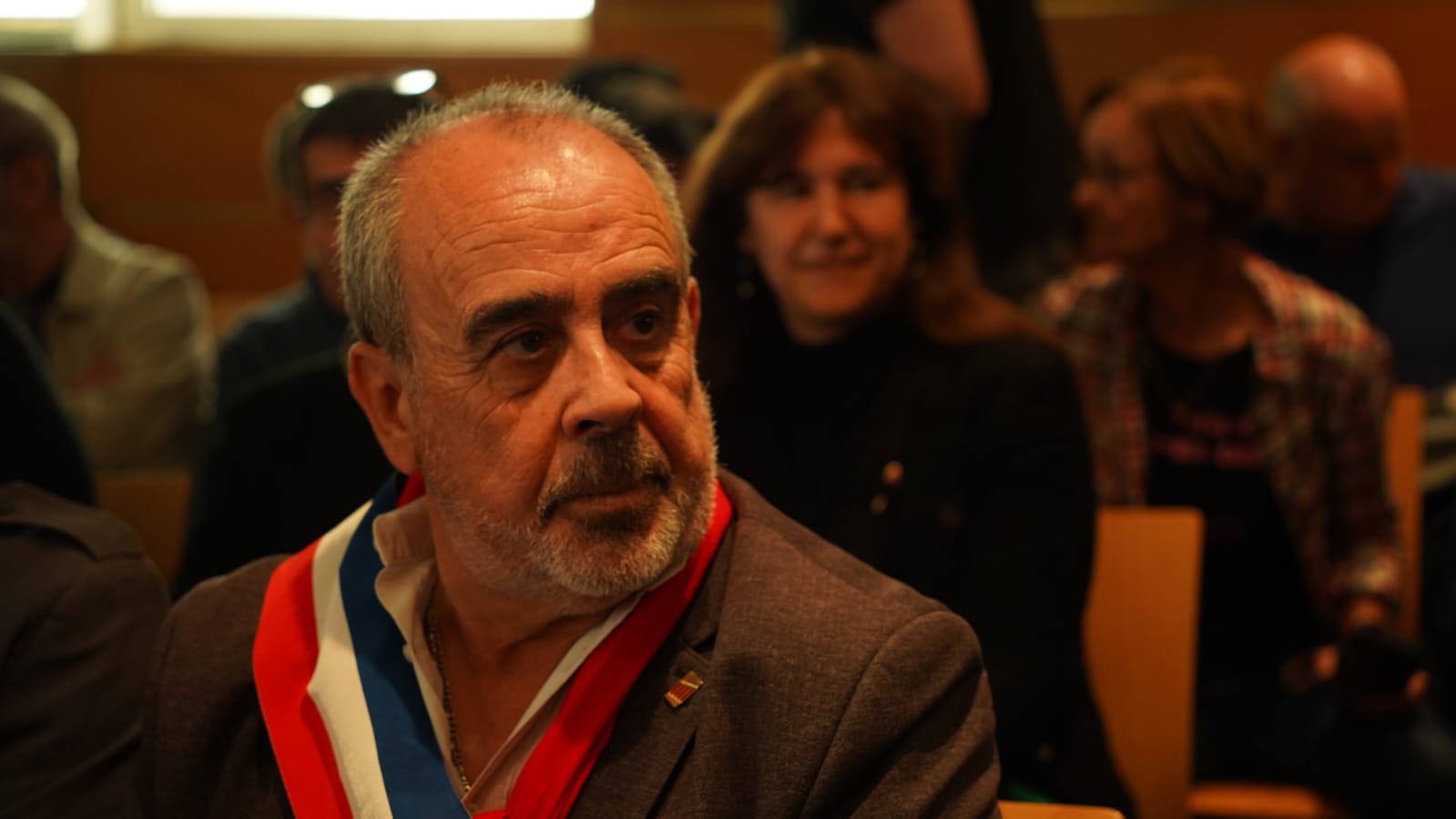Four town councils in Northern Catalonia ended up before the administrative court of Montpellier today for the same reason: having allowed the use of Catalan - with translation into French also provided - within the regulations for their respective council meetings, a rule change that has been challenged by the French state. Among these towns is the town of Elna, in Rosselló county (in French, Elne in Roussillon), which was the first to take this step for the normalization of the Catalan language. In statements to ElNacional.cat outside the court, the town's mayor, Nicolas Garcia, did not express much confidence in French justice on this matter and has his sights set on the European courts. However, he is convinced about the need to do what they have done: "If we don't speak Catalan in public places, who will?"
In this way, the mayor of Elna argues that the most logical thing would be to expect that justice will be done and the use of Catalan would be permitted with French translation (unlike what happens in Corsica or the Basque Country, where it is used without translation). Despite everything, he admits, he is not so "innocent" as to expect the Montpellier court to back his position. Nicolas Garcia has denounced that "the French state today is afraid that four town councils in the Eastern Pyrenees, which is very far from Paris and very close to Barcelona, speak Catalan". And he has claimed the linguistic initiative: "We do nothing more than say that, if we don't speak Catalan in public places, who will do it and where?"
Aware that the decision of next May 9th is likely to be contrary to his position, Nicolas Garcia confirms that "we will go to the European court as individuals because our fundamental rights are being violated". And he is convinced that that will create an opening for the normalization of regional languages in the French Republic.
The hearing in Montpellier
In the hearing today in the Montpellier administrative court, with the councils of Elna, Portvendres, Tarerac and Els Banys in the dock, appeals to the French Constitution were the main arguments on both sides. On the part of the investigating judge and the prefecture, that is to say the French state, the argument was based on Article 2 of France's Magna Carta, which establishes exclusively that "the language of the Republic is French", and nothing more than that. For this reason, and relying on several precedents of the French Constitutional Court, the representative of the French state asked to annul the articles of the internal council regulations, arguing that offering only a translation into French degrades that language.
On the other hand, the four councils who were subject to the complaint based their case on Article 75.1 of the constitutional text, which establishes that "regional languages are part of the heritage of France", and defended that this is what they are doing, incorporating other languages such as Catalan without affecting French, the "language of the Republic". The four councils' lawyer, Mateu Pons, considered the state's argument absurd: "It's as if you love your first child more because it's the first."
Among those supporting the four councils at the court was a strong contingent from south of the the Pyrenees, including delegations from the main pro-independence parties - ERC, Junts and the CUP - as well as from Òmnium Cultural and the Catalan National Assembly. Òmnium announced a donations campaign to cover court costs for the four councils, with active help from the south. "The defence of the language must be robust, constant and transversal from north to south and from east to west across the Catalan-speaking countries", said Òmnium president Xavier Antich.
Judicialization of the case
Elna was the pioneer municipality, the one that placed the first stone. It all started one day when the deputy mayor, Pere Manzanares, spoke in Catalan and the opposition councillors walked out. After this incident, and having consulted lawyers, they decided to regulate it. Hence, last April, the Rosselló town changed its regulations and became "the first municipality" to recognize the use of Catalan "officially", despite the opposing votes of five councillors. Simply put, the rule allowed councillors to address the meeting in Catalan, on the condition that their statements were translated into French. The response of the French state was not long in coming.
Last September, Rodrigue Furcy, newly elected prefect of the Pyrénees-Orientales department - and former deputy chief of staff to president Emmanuel Macron - decided to take the council to court. The argument of the prefect, a regional-level representative of the central government, is that found in Article 2 of the Constitution: "The Constitutional Council and the administrative courts have, on several occasions, ruled illegal the deliberations of deliberative assemblies celebrated in any language other than French. It is up to the administrative judge to pronounce on the legality of the deliberation of the municipality of Elna". Catalan is considered an "element capable of damaging the fundamental principles of the Republic and the hierarchy between official languages and regional languages".

